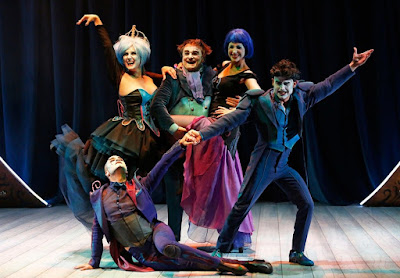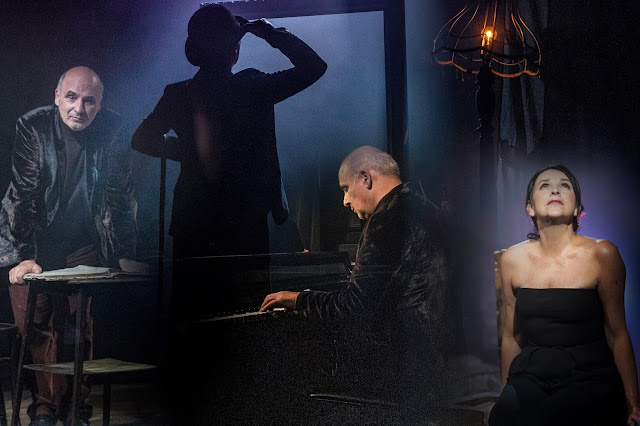Belters and bohemians: Opera Locos @Sadlers_wells

At the start of the Opera Locos performance, the announcement says that they really are singing. You could be forgiven for wondering that, given the amplification turns up the backing track and the voices so loud that you can't always tell what's real. But this is a mostly harmless and slightly eccentric blend of opera classics fused with the occasional pop classic. However, recognising the pop tunes would help if you were over a certain age. The most recent of them dates back twenty years. It's currently playing at the Peacock Theatre . Five performers play out a variety of archetype opera characters. There's the worn-out tenor (Jesús Álvarez), the macho baritone (Enrique Sánchez-Ramos), the eccentric counter-tenor (Michaël Kone), the dreamy soprano (María Rey-Joly) and the wild mezzo-soprano (Mayca Teba). Since my singing days, I haven't recognised these types of performers. However, once, I recall a conductor saying he wanted no mezzo-sopranos singing with the s







